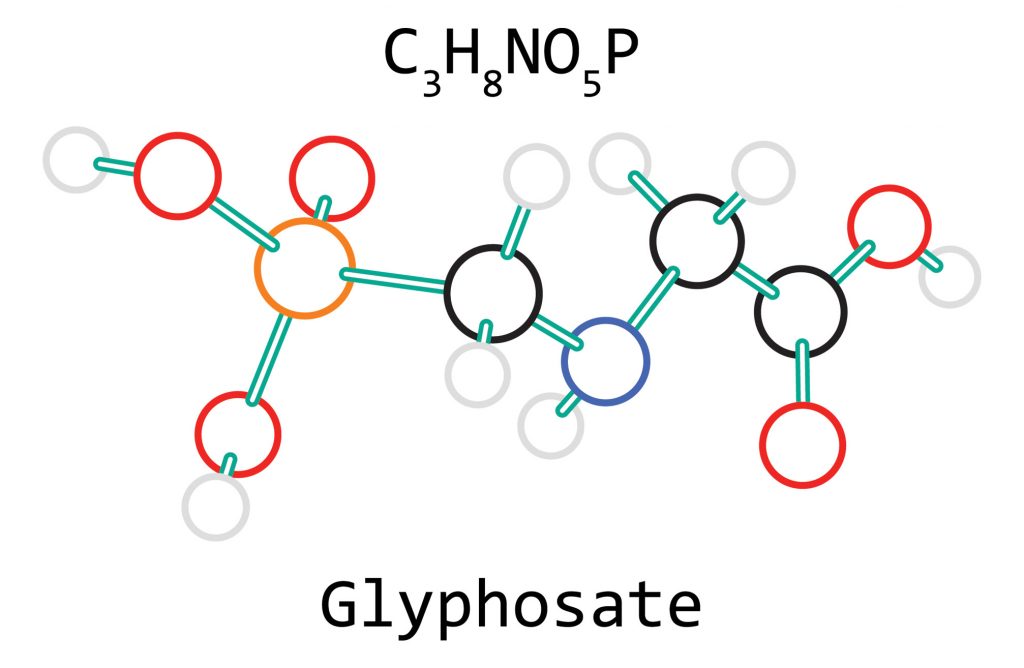
The legal team for Monsanto attempted a new defense strategy in the latest lawsuit claiming Roundup weed killer caused cancer, Pilliod v. Monsanto Co.
In the first two trials in which terminally ill people claimed the once-popular weed killer caused non-Hodgkin lymphoma after years of exposure, the Monsanto’s legal team focused mainly on simply denying that Monsanto’s product caused cancer.
This time, in the third Roundup cancer case to go to trial, the defense set out to destroy the credibility of one of the plaintiffs’ expert witnesses. The expert, Charles Benbrook, provided expert scientific testimony regarding the health risks associated with glyphosate, the active ingredient in Roundup.
This strategy failed in a stunning way.
After less than two days of deliberations, on May 13, a California jury ordered Monsanto to pay just over $2 billion in punitive and compensatory damages to a married couple, Alva and Alberta Pilliod, who both developed non-Hodgkin lymphoma (NHL) after decades of using Roundup.
The Pilliods, now in their 70’s, started using Roundup in the 1970’s and used it up until 2012.
The jury ordered Monsanto to pay $1 billion to Alberta Pilliod, who was diagnosed with non-Hodgkin lymphoma brain cancer in 2015, and another $1 billion to her husband Alva Pilliod, who was diagnosed in 2011 with non-Hodgkin lymphoma that spread from his bones to his pelvis and spine.
The jury found that Monsanto knew how dangerous Roundup was and covered up the risks associated with the use of and exposure to the herbicide.
Regarding the punitive award, the jury said that Monsanto “engaged in conduct with malice, oppression or fraud committed by one or more officers, directors or managing agents of Monsanto.”
After the Pilliod verdict, Bayer AG released a statement: “Bayer is disappointed with the jury’s decision and will appeal the verdict in this case, which conflicts directly with the U.S. Environmental Protection Agency’s interim registration review decision released just last month, the consensus among leading health regulators worldwide that glyphosate-based products can be used safely and that glyphosate is not carcinogenic, and the 40 years of extensive scientific research on which their favorable conclusions are based.”
Expert Witness, Charles Benbrook
Relying on expert testimony from Charles “Chuck” Benbrook, an agricultural economist who has studied and written about the dangers of glyphosate for many years, attorneys for the Pilliods accused Monsanto of fraud in securing regulatory approval for Roundup. Monsanto sought to prevent Benbrook’s testimony by challenging his credentials.
“He (Benbrook) attempts to substitute his personal opinions for the opinion of the jury, under the guise of ‘expertise’ that he does not possess.”
…From a motion filed in March 2019 by Monsanto’s attorneys to prevent plaintiff witness Charles Benbrook from testifying.
The defense filed a motion to exclude his testimony. Basically, the motion said that Benbrook was not an expert on the subject at hand. The judge ruled that Benbrook could testify, but not about whether or not Monsanto misled the EPA about conducting further research to ensure Roundup’s safety, and he could not testify about Monsanto’s motive or intent.
Benbrook’s CV includes a number of positions in agriculture and natural resources including Research Director of The Organic Center and Research Professor at the Center for Sustaining Agriculture and Natural Resources at Washington State University. He holds a bachelor’s degree in economics from Harvard University (1971), an M.A. (1979) and a PhD (1980) in agricultural economics from the University of Wisconsin-Madison. He’s authored or co-authored several publications including an anti-GMO commentary published in the New England Journal of Medicine.
Benbrook’s best-known study, published in 2012, concluded that genetically modified foods have resulted in increased pesticide use supposedly because weeds are developing resistance to glyphosate, but this study was widely criticized in the mainstream scientific community because of where he got some of his data.
Regarding the defense strategy to attack the credibility of Benbrook, expert witnesses are paid all the time in civil trials; it’s common practice that everyone in the legal community knows about but lay people may not understand. It’s also common practice to undermine the credibility of witnesses for the “other side,” and try to show that they have a disingenuous motive for testifying; that motive being financial gain, in most cases.
Benbrook was a controversial witness and a damaging one to the defendant, Monsanto, in the Pilliod trial. Benbrook basically said that Monsanto could have and should have warned the public about the dangers associated with using Roundup weed killer but chose not to, which, in turn, put hundreds of thousands of people at risk for terminal cancer.
Benbrook testified that back in 1985, when the EPA classified glyphosate as a “probable human carcinogen,” the future sales of Roundup weed killer would be negatively impacted. Monsanto then did everything in its power to cover up the dangers of its product, and the company even assured the EPA that further research would be done to ensure the product’s safety.
According to an article on CourthouseNews.com, “Benbrook’s testimony has been highly contested by the defense, both before and during trial. Monsanto’s attorneys moved to exclude his testimony altogether, and in mid-March, Judge Winifred Smith issued an order limiting Benbrook to explaining regulations and herbicide registration requirements.”
One stunning bit of testimony from Benbrook was that even though Monsanto advised its own employees to use skin protection, chemical-resistant clothing, face shields, and shoe coverings when working with Roundup, it put none of these warnings on Roundup product labels and has never even proposed adding warnings to the label.

Monsanto Legal Team Took New Approach in Pilliod Trial
In the Pilliod trial, the plaintiffs’ counsel called Charles Benbrook to the stand to help convince the jury that Monsanto had a long history of “fudging” evidence to make its herbicides appear safer than they actually were.
As far back as the 1970’s, according to Benbrook, the problems with research integrity began when Monsanto hired the now-defunct Industrial Bio-Test (IBT) Laboratories to conduct toxicology studies on Roundup’s active ingredient, glyphosate; the study was a requirement by the EPA to earn approval of Roundup. Based in part of what IBT reported, Roundup was approved for sale in 1974, but the IBT data was later found to contain discrepancies on the safety of glyphosate. According to Benbrook, IBT routinely falsified data; three of its executives were later convicted of fraud—not related to glyphosate, specifically.
The defense argued, however, that Benbrook is a paid “expert” witness for the plaintiffs and as the principal in a consulting business called Benbrook Consulting, he has testified for plaintiffs suing Monsanto in state and federal court in California. The defense argued that his job is testify on behalf of the plaintiffs, so nothing he said could be considered objective or truthful as he clearly had an agenda to support the arguments presented by plaintiff counsel.
Evidence of a Link Between Glyphosate and NHL
While Monsanto steadfastly claims there’s no legitimate scientific research showing a definitive link between glyphosate and NHL, the rest of the world disagrees. While the EPA said that glyphosate is “not likely” to cause cancer, recent scientific analysis shows that people with long-term exposure to glyphosate-containing herbicides are 41% more likely to develop NHL than those not exposed.
CNN published an article a couple of months ago that stated “Researchers from the University of Washington evaluated existing studies into the chemical — found in weed killers including Monsanto’s popular Roundup — and concluded that it significantly increases the risk of non-Hodgkin lymphoma (NHL), a cancer of the immune system.” In 2015, the World Health Organization’s International Agency for Research on Cancer classified glyphosate as “probably carcinogenic to humans.”
Monsanto has accused the scientists with the IARC who classified glyphosate as a probable human carcinogen in 2015 of engaging in improper conduct; Monsanto also claimed the IARC “failed to give adequate weight to several important studies.”
Monsanto Legal History
As of mid-April 2019, more than 13,000 plaintiffs have sued Monsanto, claiming that its active ingredient, glyphosate, caused their NHL. Some of the Monsanto lawsuits are heard in state courts, while numerous others have been consolidated in a federal multi-district litigation (MDL) in Northern California; 800 of those lawsuits are being heard by Vince Girdhari Chhabria, a United States District Judge of the United States District Court for the Northern District of California and a former Deputy City Attorney at the San Francisco City Attorney’s Office.
The state and federal lawsuits are expected to go on for the next several years, and many have speculated that by the time all is said and done, a global settlement between $3 billion and $5 billion may be paid by Bayer AG, the company that purchased Monsanto in June 2018 approximately $60 billion.
Two Losses for Monsanto to Date
Monsanto lost two big decisions before last week’s $2 Billion loss in the Pilliod case. The first plaintiff to be awarded a massive settlement after proving Roundup caused his cancer was Dewayne “Lee” Johnson, a Northern Californian groundskeeper and pest-control manager who was only 42 years old when he developed a strange rash that would lead to a diagnosis of non-Hodgkin’s lymphoma in August 2014.
He sued Monsanto in June 2018, and in August 2018, jurors unanimously agreed Roundup was responsible for his cancer and awarded him a total of $289 million, with $250 million in punitive damages and $39.25 million in compensatory damages. A San Francisco Superior Court judge eventually slashed his punitive damages stating the ratio between compensatory and punitive damages must be 1:1, so the total award ended up being just under $80 million.
The second loss for Monsanto occurred in Hardeman vs. Monsanto Co., when Edwin Hardeman sued Monsanto claiming his use of Roundup weed killer from the 1980’s to 2012 caused the non-Hodgkin lymphoma with which he diagnosed in 2015. The first phase of his lawsuit against Monsanto, which concluded on March 19, found that Monsanto Roundup was a substantial factor in causing his cancer. The second phase of the trial, which ended on March 27, found Monsanto and its parent company, Bayer AG, liable.
Specifically, the jury found that “Monsanto should be held liable for Hardeman’s illness because it failed to include a label on its product warning of the weed killer’s risk of causing cancer.” Evidence that Monsanto’s own internal studies had cast doubt about the product’s safety certainly played a part in the decision, as did evidence of the company’s efforts to influence government studies about the product’s safety. The jury awarded 70-year-old Edwin Hardeman over $5 million in compensatory damages and an additional $75 million in punitive damages for a total of $80 million.





Leave a Comment